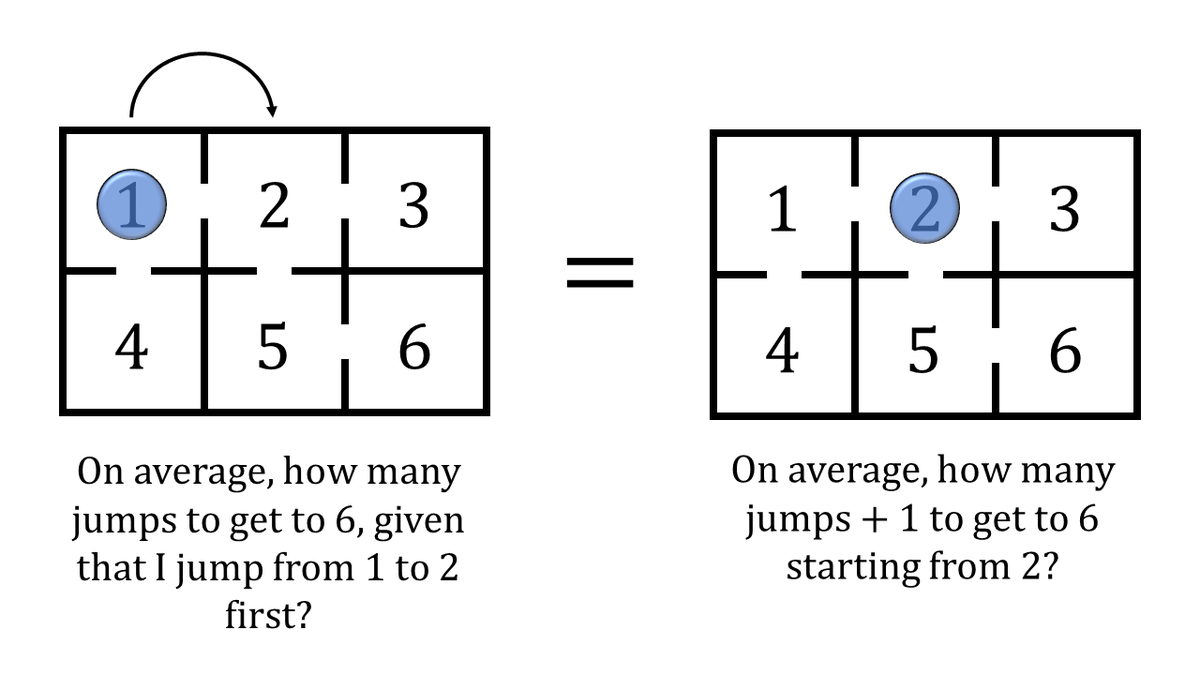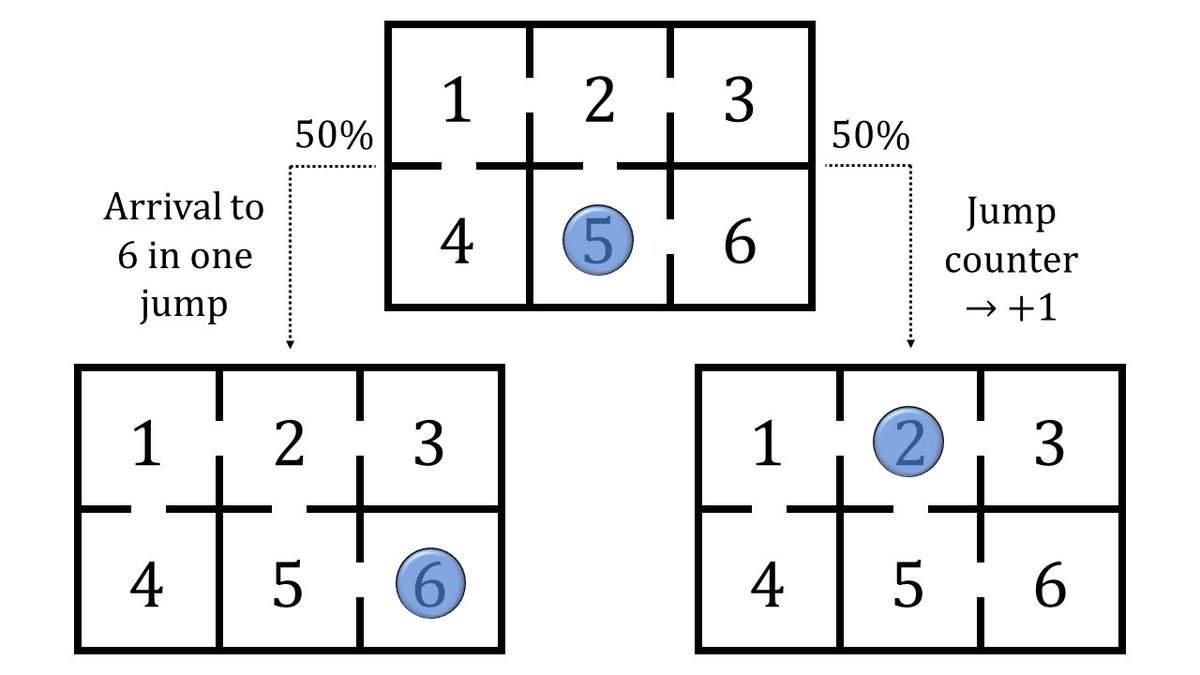A chip, starting in position 1, randomly jumps to a reachable neighboring spot and keeps doing so. What's the average no. of jumps the chip will make before it gets to position 6? #math
The answer is 19 jumps. Seems big, no?
Anyways, systems like these—where something is moving around randomly while following a set of rules—are called "random walks", and this funny technique (called first-step analysis) is just one tool we can use to understand them.
If you like, share an example of random walk-like phenomena you know about, or something that you suspect might be a random walk!







